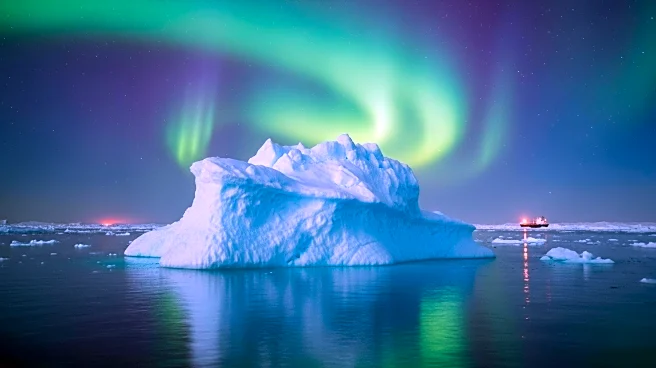What's Happening?
Chinese shipping startup Sea Legend has launched a new shipping service from China to Europe via the Northern Sea Route (NSR), an Arctic shipping lane. The service, named 'China-Europe Arctic Express,' aims to provide faster and more cost-effective shipping compared to traditional routes. However, the use of the NSR has raised environmental concerns due to the potential impact on the Arctic ecosystem. The Clean Arctic Alliance has expressed skepticism about the environmental benefits of the route, citing concerns over emissions and the use of heavy fuel oil.
Why It's Important?
The launch of Sea Legend's Arctic shipping service highlights the growing interest in alternative shipping routes as global trade continues to expand. The NSR offers a shorter and potentially more economical path between Asia and Europe, which could reduce shipping times and costs. However, the environmental implications of increased Arctic shipping are significant, as the region is already vulnerable to climate change. The use of heavy fuel oil and the risk of spills pose threats to the fragile Arctic ecosystem. The development underscores the need for careful consideration of environmental impacts in the pursuit of economic benefits.
Beyond the Headlines
The introduction of Arctic shipping routes raises broader questions about the balance between economic development and environmental protection. As global warming makes the Arctic more accessible, there is potential for increased commercial activity, but also heightened risks to the environment. The situation calls for international cooperation and regulation to ensure that shipping practices do not exacerbate climate change or harm the Arctic's unique ecosystem. The debate over Sea Legend's new route reflects the complex interplay between economic interests and environmental stewardship in the context of global trade.









